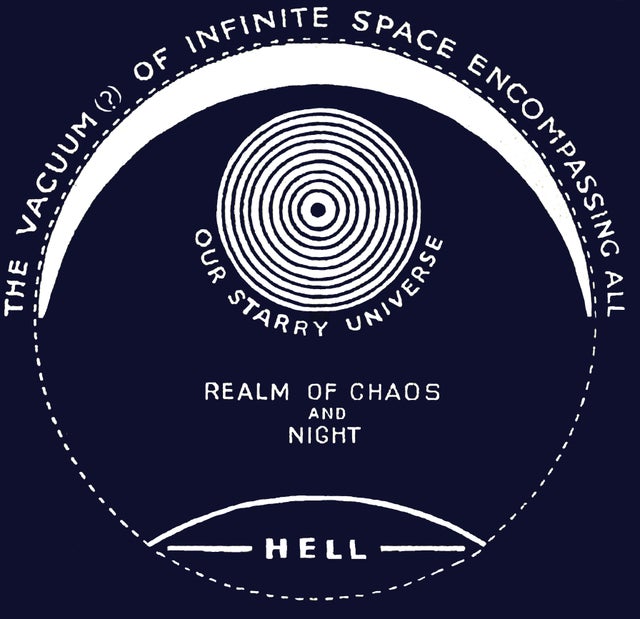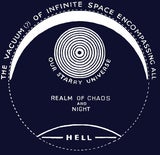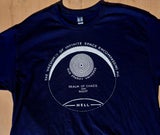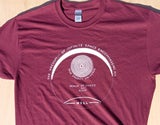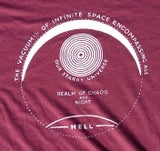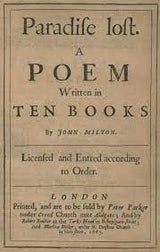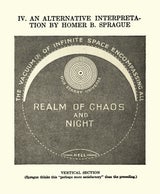Vacuum (?) of Infinite Space
SKU:
£17.85
£17.85
Unavailable
per item
The diagram is an interpretation by Homer B Sprague of the cosmology embodied in John Milton's Paradise Lost. The epic poem from the 17th century recounts the story of the fall from the Garden of Eden and the role of Satan over 10, 000 lines of verse. Many illustrators have been drawn to Milton's work including Gustav Dore and William Blake.
The question mark next to "vacuum" is telling, for even today there remains uncertainty about the nature of our planet's eerie surroundings. Much greater minds than mine have addressed this subject but the concensus answer seems to be "almost". A vacuum is devoid of matter, and space is very sparsely populated, but nor completely empty.
The graphic remains an attractively simple interpretation of the world. I have slightly altered the proportions of some of the original individual elements to suit my requirements. Hell, in particular, has been enlarged to reflect the reality of the modern world.
If you have the stamina, you can work your way through Paradise Lost here:
https://archive.org/details/miltonsparadiselmilton/page/86/mode/2up
You can read Philip Pullman's accessible introduction to the work for the British Library here:
https://www.bl.uk/restoration-18th-century-literature/articles/philip-pullmans-introduction-to-paradise-lost
You can watch and listen to Brian Cox talking about space vacuums in the BBC's Human Universe here:
https://www.youtube.com/watch?v=E43-CfukEgs
The question mark next to "vacuum" is telling, for even today there remains uncertainty about the nature of our planet's eerie surroundings. Much greater minds than mine have addressed this subject but the concensus answer seems to be "almost". A vacuum is devoid of matter, and space is very sparsely populated, but nor completely empty.
The graphic remains an attractively simple interpretation of the world. I have slightly altered the proportions of some of the original individual elements to suit my requirements. Hell, in particular, has been enlarged to reflect the reality of the modern world.
If you have the stamina, you can work your way through Paradise Lost here:
https://archive.org/details/miltonsparadiselmilton/page/86/mode/2up
You can read Philip Pullman's accessible introduction to the work for the British Library here:
https://www.bl.uk/restoration-18th-century-literature/articles/philip-pullmans-introduction-to-paradise-lost
You can watch and listen to Brian Cox talking about space vacuums in the BBC's Human Universe here:
https://www.youtube.com/watch?v=E43-CfukEgs

